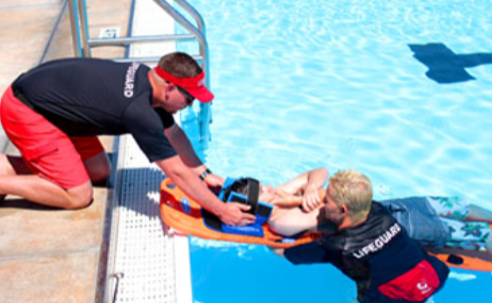How to Get Lifeguard Certification

Becoming a certified lifeguard is a rewarding and valuable skill. This guide will walk you through the steps to get your lifeguard certification. Whether you’re looking to work at a pool, beach, or waterpark, the process is immediate however requires devotion.
Understanding the Role of a Lifeguard
Lifeguards are answerable for the safety of swimmers. They prevent accidents and answer emergencies. Their training covers water safety, rescue techniques, and CPR. A serious job requires comprehensive planning and certification.
Meeting the Essentials
Before you can begin training, you ought to meet some basic requirements. These by and large include:
- Minimum age: Generally, you should to be somewhere around 15 years of age.
- Physical fitness: You ought to be sound and physically fit.
- Swimming skills: You ought to have the option to swim a certain distance, float, and play out a timed swim test.
Check with your selected training association for specific requirements.
Choosing the Right Training Program
A couple of organizations offer lifeguard certification programs. Look for a program that is authorized and by and large saw. Research different programs and find one that accommodates your timetable and area. You can look online for “lifeguard certification near me” to find neighborhood decisions.
Enrolling in a Course
When you find a sensible program, pursue the course. Most programs offer both online and in-person training. The online piece commonly covers hypothetical knowledge. The in-person meetings base on reasonable skills.
Online Training
The online part includes topics like water safety, first aid, and CPR. You can finish these modules at your own speed. Try to take notes and figure out the material, as it will be urgent for your final test.
In-Person Training
The involved meetings are basic. You’ll learn and practice rescue techniques, how to use lifeguard equipment, and how to manage emergencies. This piece of the training is intense and physically demanding. Be ready to swim an extraordinary arrangement and practice different rescue situations.
Passing the Pre-Course Swim Test
Before starting the in-person training, you’ll presumably need to float through a swim assessment. This test assesses your swimming skills to ensure you’re ready for the course. Common elements of the swim test include:
- Swimming 300 yards continuously.
- Treading water for two minutes using simply your legs.
- Completing a timed event that involves swimming, retrieving a block from the lower part of the pool, and swimming back.
Practice these skills beforehand to increase your potential outcomes passing the test.
Attending the Training Meetings
During the in-person training, you’ll cover different topics. These include:
- Water Rescues: Sort out some way to perform rescues using different techniques and equipment.
- CPR and First Aid: Get certified in CPR and basic first aid. This is essential for responding to emergencies.
- Spinal Injury Management: Comprehend how to manage potential spinal injuries safely.
- Observation: Sort out some way to really screen swimmers and identify potential risks.
- Emergency Action Plans: Cultivate plans for responding to different kinds of emergencies.
Partake actively in all meetings. Practice the skills over and over until you feel certain.
Taking the Final Tests
Close to the finish of your training, you’ll need to float through both created and sensible tests. The created test tests your hypothetical knowledge. Focus on your notes and review the online materials to plan. The sensible test studies your active skills. You’ll be approached to exhibit different rescue techniques, perform CPR, and handle reenacted emergencies.
Receiving Your Certification
When you breeze through the tests, you will acknowledge your certification. This certification exhibits that you have the skills and knowledge to be a lifeguard. It’s for the most part substantial for quite a while. Starting there forward, you’ll need to reestablish your certification.
Read more How Appeal Courts are balancing the Justice System
Finding a Job as a Lifeguard
With your certification nearby, you can begin looking for lifeguard jobs. Pools, beaches, and waterparks are for the most part denied of trained lifeguards. You can glance through online job sheets, contact neighborhood entertainment focuses, or check with your training association for job leads.
Staying Certified
Lifeguard certification is definitely not a one-time achievement. You ought to stay current with your training. This means:
- Renewing Your Certification: Normally at regular intervals, you’ll need to re-energize your certification. This involves taking a supplemental class and passing the tests again.
- Continuing Schooling: Some organizations offer additional courses to overhaul your skills. Think about taking courses in cutting edge first aid, water safety instructor, or other related fields.
Importance of Lifeguard certification
Having a lifeguard certification is urgent. It ensures that you are ready to manage emergencies. It moreover makes you a valuable asset for directors. Certified lifeguards help with keeping swimming districts safe and pleasant for everyone.
Tips for Progress
- Stay Fit: Maintain incredible physical fitness. Lifeguarding is a demanding job.
- Practice Regularly: Keep your skills sharp by practicing regularly.
- Stay Informed: Stay revived on the latest lifeguarding techniques and safety conventions.
- Be Professional: By and large conduct yourself in a professional manner. You are answerable for the safety of others.
Final Word
Getting your lifeguard certification is a process that involves meeting requirements, choosing the right program, passing tests, and ongoing training. A rewarding job offers the valuable opportunity to save lives and advance safety.
If you’re ready to step through on the exam, begin your mission by searching for “lifeguard certification near me” today and begin your journey. The American Lifeguard Association offers apparent and respected certification programs that can help you with achieving your objective.



